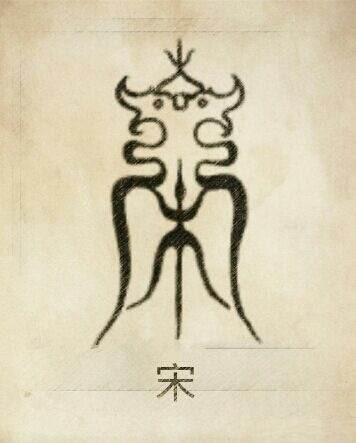The Song(sòng)surname is more than just a family name—it’s a 3,000-year-old story of resilience, cultural fusion, and innovation. From ancient dynasties to modern times, the Song family has played a pivotal role in shaping Chinese history and culture.

Ⅰ、Surname origin
1. The Royal Roots (1046 BCE)
The Song surname traces its lineage to Weizi Qi, a nobleman from the Shang Dynasty. After the fall of the Shang, the Zhou rulers granted him the territory of Song (modern-day Henan Province).
When the Song State was conquered in 286 BCE, its people adopted “Song” as their surname to honor their homeland.
2. Minority groups changing surnames:
Over centuries, groups like the Hunan tribes, the Tanguts of the Western Xia Dynasty, and the Manchu Sunggiya clan adopted the Song surname, adding to its diversity.
3. Mongolian Connection:
During the Ming Dynasty, a Mongolian general named Boyan Timur was granted the Song surname as a mark of loyalty.
Ⅱ、Historical Figures:
1. Ancient sages;
Song Yu (290–223 BCE): A renowned poet whose works, such as The Nine Arguments, laid the foundation for classical Chinese literature.
Song Ci (1186–1249): Known as the “Father of Forensic Science,” he authored Washing Away of Wrongs, the world’s first systematic guide to criminal investigation.
Song Yingxing (1587–1666): A polymath whose The Exploitation of the Works of Nature documented China’s technological advancements during the Ming Dynasty.
2. Leaders and Reformers
Song Jing (663–737): A Tang Dynasty statesman who helped usher in the “Golden Age of Kaiyuan.”
Song Qing ling (1893–1981): A revolutionary leader and honorary president of modern China, widely respected for her contributions to social reform.
Ⅲ、Cultural Significance:
1. Ancestral Homelands
Key regions like Jingzhao (Xi’an) and Henan served as cultural hubs for the Song clans.
2. Family Philosophies
The “Jade Virtue Hall” tradition, established by Song Dynasty scholars Song Qi and Song Xiang, emphasized:
“Literature carries truth, integrity outshines wealth.”
Many Song family mottos, such as:
“Better to be an honest official than a corrupt millionaire,”
reflect a commitment to ethics and education.
Ⅳ、Social impact
1. Migration Patterns
Ancient: Spread along trade routes to regions like Gansu and Fujian.
Modern: Over 12 million bearers worldwide, with significant populations in Shandong and Henan provinces.
2. Contemporary Achievers
Song Jian: A pioneer in cybernetics and recipient of the International Federation of Automatic Control Prize.
William Song (Song Zhi Ping): A transformative leader in China’s building materials industry.
Conclusion:
The evolution of the Song surname is not only a history of the inheritance of Central Plains civilization but also a testament to the unity and diversity the Chinese nation. From the ancient land of Shangqiu to the migration across the seas, from the "Jade Virtue" family style to modern innovation, Song surname clan has written a unique chapter in the long river of history with an inclusive and absorptive attitude.